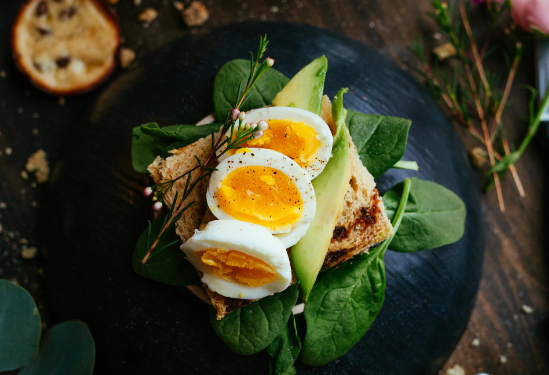Introduction
Cooking is not just about assembling ingredients; it’s about elevating flavors and creating memorable dining experiences. One of the most effective ways to enhance the taste of your dishes is through the use of marinades and seasoning blends. Understanding how to utilize these culinary tools can truly transform your cooking from ordinary to extraordinary.
Understanding Marinades
Marinades are flavorful liquid mixtures used to soak and tenderize meat, poultry, seafood, or vegetables before cooking. They serve multiple purposes, including adding flavor, tenderizing tougher cuts of meat, and even preserving perishable items.
Types of Marinades
Marinades come in various forms, each with its unique composition and purpose. Oil-based marinades, such as those with olive oil or sesame oil, are excellent for adding moisture and preventing dryness. Acid-based marinades, like those containing citrus juice or vinegar, help break down proteins, resulting in tender and juicy meat. Dairy-based marinades, often featuring yogurt or buttermilk, add creaminess and tenderness to dishes.
Tips for Marinating
For optimal results, it’s crucial to marinate your ingredients correctly. Pay attention to marinating durations, as over-marinating can lead to mushy textures. Additionally, ensure even coating by using a resealable plastic bag or shallow dish. Avoid cross-contamination by marinating meats in the refrigerator and discarding any leftover marinade that has come into contact with raw proteins.
Flavorful Seasoning Blends
Seasoning blends, also known as spice mixes or rubs, are combinations of herbs, spices, salts, and other flavorings used to enhance the taste of dishes. These blends add depth, complexity, and aromatic richness to your culinary creations.
Popular Seasoning Blends
From Cajun seasoning to Italian herb blends, the options for seasoning mixes are endless. Each blend offers a distinct flavor profile suitable for various cuisines and dishes. Experiment with blends like barbecue rubs, curry powders, or taco seasonings to add excitement to your meals.
Creating Your Own Blends
While store-bought seasoning blends are convenient, creating your own allows for customization and control over flavor intensity. Start with a base of salt and pepper, then add herbs and spices according to your taste preferences. Experiment with different ratios and ingredients until you find the perfect blend for your dishes.
Enhancing Dishes with Marinades and Seasoning Blends
Marinades and seasoning blends are versatile additions to any cook’s arsenal. Whether you’re grilling, roasting, or sautéing, incorporating these flavor enhancers can take your dishes to new heights. Use marinades to infuse meats with bold flavors and seasoning blends to add complexity to vegetables and grains.
Pairing Suggestions
Pairing the right marinade or seasoning blend with your ingredients is key to achieving harmony in flavor. Consider the protein or vegetable you’re cooking and match it with complementary flavors. For example, citrus-based marinades pair well with seafood, while smoky barbecue rubs are perfect for grilled meats.
Storage and Preservation
To maintain the freshness and potency of your marinades and seasoning blends, store them in airtight containers away from heat and sunlight. Check expiration dates regularly and discard any blends that have lost their aroma or flavor. Proper storage ensures that your culinary creations always pack a punch.
Health Benefits
In addition to enhancing taste, marinades and seasoning blends can offer health benefits. Many herbs and spices are rich in antioxidants and anti-inflammatory properties, contributing to overall well-being. By incorporating these flavorful ingredients into your cooking, you’re not just tantalizing your taste buds but also nourishing your body.
Market Trends
The culinary world is constantly evolving, and so are trends in marinades and seasoning blends. From global fusion flavors to artisanal small-batch blends, consumers are seeking unique and exotic options to elevate their cooking. Stay informed about market trends to stay ahead of the curve in your culinary adventures.
Elevating Your Culinary Skills
Mastering the art of marinades and seasoning blends can truly elevate your culinary skills. Impress your family and friends with restaurant-quality dishes bursting with flavor and complexity. With a little creativity and experimentation, you can become a culinary maestro in your own kitchen.
Conclusion
In conclusion, marinades and seasoning blends are powerful tools that can transform ordinary meals into extraordinary culinary experiences. By understanding the nuances of flavor combinations and proper application techniques, you can elevate your cooking to new heights. Experiment, explore, and let your taste buds guide you on a flavorful journey.

FAQs
1. How long should I marinate meat for optimal flavor?
- Marinating times vary depending on the type of meat and the ingredients in the marinade. As a general rule, marinate tougher cuts of meat for at least 4 hours, while delicate proteins like seafood only need 30 minutes to an hour.
2. Can I reuse leftover marinade?
- It’s not recommended to reuse marinade that has come into contact with raw proteins, as it can harbor harmful bacteria. Discard any leftover marinade or boil it before using it as a sauce.
3. Are seasoning blends high in sodium?
- Some seasoning blends may contain high levels of sodium, especially commercial varieties. Consider making your own blends using low-sodium alternatives or reducing the amount of salt in recipes.
4. How can I tell if my seasoning blends are still fresh?
- Fresh seasoning blends should have a vibrant color and a strong aroma. If your blends appear dull or lackluster, they may have lost their potency and should be replaced.
5. Can I use marinades and seasoning blends together?
- Absolutely! Combining marinades with seasoning blends can result in layers of complex flavor. Just be mindful of the salt content in both to avoid over-seasoning.
This comprehensive guide to marinades and seasoning blends equips you with the knowledge and skills to take your cooking to the next level. Experiment, explore, and savor the endless possibilities of flavor enhancement in your culinary creations. Happy cooking!




